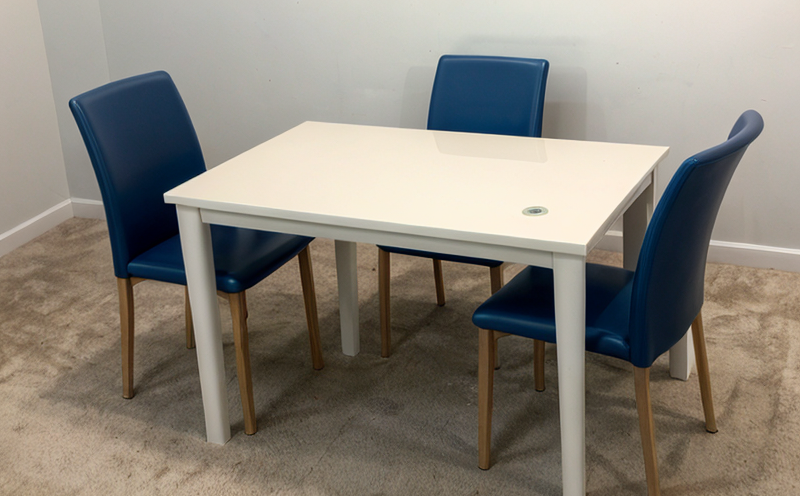ASTM D790 Flexural Properties Testing of Interior Plastic Components
The ASTM D790 standard test method is widely recognized as a definitive procedure for determining the flexural properties of plastic materials. This service focuses specifically on interior plastic components used in furniture and interior design, where understanding the mechanical behavior under bending stress is crucial for product safety and performance.
Flexural strength is one of the most critical mechanical properties that determine how well a material can withstand deformation before breaking. In the context of furniture and interior plastics, this property ensures that components like chair legs, backrests, and armrests remain intact under typical use conditions. The ASTM D790 test method involves subjecting specimens to progressively increasing loads until failure occurs.
The process begins with careful specimen preparation according to ASTM D790 specifications. This includes selecting appropriate dimensions for the sample (typically a rectangular bar), ensuring smooth surface finishes, and maintaining consistent temperature and humidity conditions during testing. The choice of geometry is important because it directly influences the calculated flexural properties.
During the test itself, precise control over loading rate and environmental factors ensures accurate results. Automated testing machines equipped with strain gauges provide real-time data on deflection and stress distribution across the specimen. This allows for detailed analysis of how different sections behave under load, which is particularly valuable when optimizing design parameters or evaluating new materials.
The outcome of ASTM D790 testing provides key insights into a material's ability to resist bending stresses without failing. These data points are essential for quality assurance teams who must ensure compliance with industry standards and customer expectations. For R&D engineers, this information supports iterative design processes aimed at improving product durability while maintaining aesthetic appeal.
It is worth noting that ASTM D790 testing goes beyond mere strength assessment; it also helps identify potential weak points in the plastic structure that could lead to premature failure during manufacturing or use. By identifying these issues early on, manufacturers can implement corrective measures before production begins, thereby reducing costly recalls and enhancing overall product reliability.
From a regulatory perspective, ASTM D790 results serve as critical evidence supporting claims about a product's robustness. Compliance officers rely heavily on such tests when preparing documentation for certifications or seeking approval from governing bodies responsible for safety standards in consumer goods.
Applied Standards
| Standard Reference | Description |
|---|---|
| ASTM D790-18 | Standard Test Method for Flexural Properties of Unreinforced and Reinforced Plastics and Related Materials |
| ASTM D732-15e1 | Standard Test Methods for Tensile Properties of Polymer Film and Sheeting |
The ASTM D790 standard specifies detailed procedures for preparing samples, applying loads, measuring deflections, and interpreting results. It covers both unreinforced and reinforced plastics, making it versatile enough to cover a wide range of materials used in furniture construction.
Eurolab Advantages
- Accurate and repeatable test results using state-of-the-art equipment.
- Dedicated laboratory personnel with extensive experience in plastics testing.
- Comprehensive suite of services tailored to meet specific client needs.
- Access to cutting-edge analytical techniques for advanced material characterization.
At Eurolab, our commitment to excellence extends beyond just executing ASTM D790 tests; we also offer valuable support throughout the entire process from initial consultation through final report delivery. Our team works closely with clients to understand their unique requirements and develop customized solutions that address these needs effectively.
International Acceptance and Recognition
- ASTM D790 is internationally recognized by organizations such as ISO, IEC, and others for its reliability and accuracy in assessing flexural properties of plastics.
- The standard has been adopted globally in industries ranging from automotive to electronics, ensuring consistent quality standards worldwide.
Our clients benefit from this widespread acceptance by gaining access to a network of experts across various sectors who adhere to the same high-quality benchmarks. This interoperability facilitates seamless collaboration between partners and fosters trust within supply chains.





